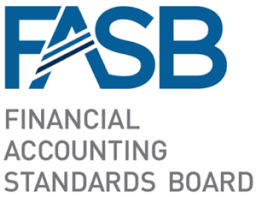
The Real Estate Roundtable this week submitted two requests to the Financial Accounting Standards Board (FASB) and securities regulators to prevent exacerbating the destructive economic repercussions of the coronavirus crisis. The first letter urges the immediate suspension of “mark-to-market” accounting rules (FAS 157). The second letter encourages the expansion a provision in the CARES Act that suspends the new Current Expected Credit Losses (CECL) for banks – by including non-banking financial institutions and insurance companies. (Mark-to-Market letter, March 31 and CECL letter, April 1)
- On March 31, The Roundtable addressed the mark-to-market – or “fair value” – rules in a comment letter to regulators. Measuring an asset at fair value records it at a price it would obtain in an orderly market instead of the asset’s original purchase cost. During unfavorable or volatile markets, the method does not accurately represent an asset’s true value. (BGov, March 31)
- When the market-based measurement no longer accurately represents the underlying asset’s true value, a company should not be forced to calculate the selling price of these assets or liabilities during unfavorable or volatile times, such as today’s COVID-19 crisis.
- The Roundtable letter explains that the mark-to-market rules will further exacerbate the growing financial crisis. As many tenants will not be able to meet their debt obligations, liquidity in credit and capital markets has frozen, and the value of asset-backed securities collateral (including commercial mortgage-backed securities, or CMBS) is now set to decline.
- “In light of these events, it is important for the Financial Accounting Standards Board (FASB) to take action to immediately suspend mark-to-market accounting. It is simply not possible to properly value assets in illiquid and non-functioning markets,” the letter states.
- During the financial crisis of 2008-2009, the FASB voted on and approved new guidelines that allowed for asset valuation to be based on a price that would be received in an orderly market rather than a forced liquidation. The Roundtable letter encourages the FASB to take similar action now.
- On April 1, The Roundtable wrote to the FASB and the Securities and Exchange Commission (SEC) urging the regulators to expand the suspension of the new Current Expected Credit Losses (CECL) accounting standard during the current COVID-19 crisis beyond banks – to include all companies, including non-bank financial companies and insurance companies. (Roundtable CECL letter, April 1)
- The CARES Act allows federally insured financial institutions to delay the implementation of the CECL standard. Additionally, federal banking regulators recently issued an interim final rule allowing lenders to delay the estimated impact on regulatory capital.
- The new CECL standard changes the way banks calculate reserves on assets, requiring banks and nonbanking finance companies to estimate the expected loss over the life of a loan. For real estate, there is concern that this new standard will exacerbate the current liquidity crisis.
- While CECL is expected to have the greatest impact on banks (which typically have extensive financial instrument portfolios), even non-banking entities are very likely to hold financial instruments within the scope of CECL.
- U.S. commercial and multifamily real estate encompasses approximately $16 trillion in income-producing assets, supported by over $4 trillion in debt – mostly provided by commercial banks, life companies and commercial mortgage backed securities (CMBS).
- Therefore, it is important to apply this CECL suspension to non-bank finance companies, including life companies who also play a significant role in providing essential liquidity to the commercial real estate industry. The Roundtable letter encourages the FASB to suspend application of the new CECL standard for all companies.
The Roundtable’s Real Estate Capital and Credit Policy Advisory Committee (RECPAC) will continue to provide expertise and insight into policy steps that will help support the restoration of necessary market liquidity resulting from the COVID19 crisis.
# # #
